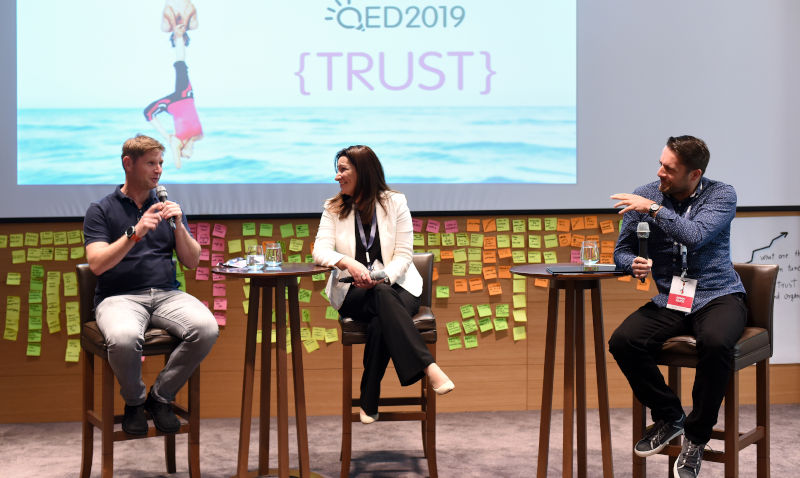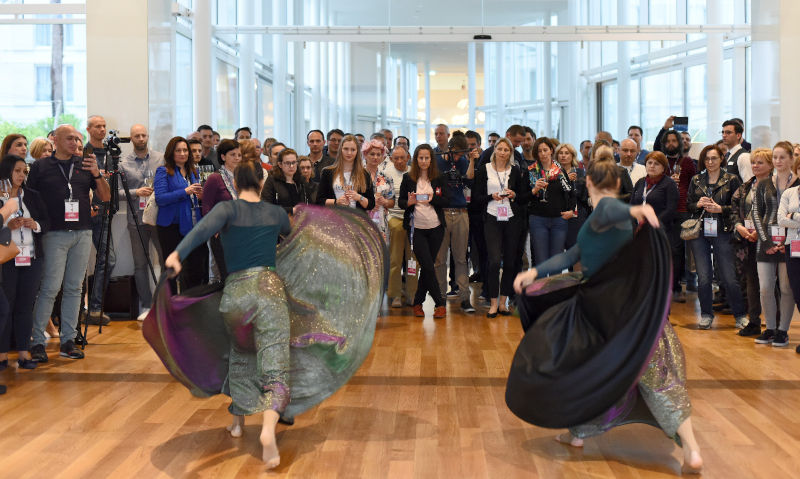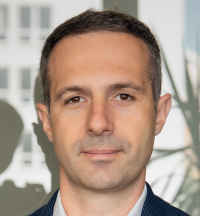0800-DEVOPS #22
Let the inmates run the asylum, 0800-DEVOPS meets QED
 6 minute read
6 minute read
An unpretentious newsletter that started as a personal learning and getting-in-touch project by Ivan Krnic grew into a popular sociotechnical newsletter covering topics of technical excellence, organizational improvements, and productivity.
Let the inmates run the asylum
We are all well familiar with a theoretical world. In this world, we understand each other and the vision of what we do is perfectly clear. Customers are waiting in line to buy our services all the while demonstrating more patience than my mother. All portfolio initiatives are perfectly aligned and come together like a perfect game of Tetris, leaving us just enough capacity to always handle the technical debt, investigate new technologies and improve the delivery process.
We know precisely what to do in a theoretical world. There is a textbook answer to every situation.
However, we’re not living in a theoretical world but rather in a messy one. The one in which communication fails, projects overlap, people leave the company, new people join, delivery dates are balanced against quality, and technical debt creeps in.
Does it mean that we’re failing? No, it means that we’re living a real life.
OK then, what can we do? How can we help our teams?
One thing leaders/coaches/managers do is step in with their best intentions to help. Knowing that some solutions worked for them in the past, they try to apply those solutions to their teams as well. In effect, they take over the control over the teams. There are two problems with this approach:
1) leader starts something that they cannot finish because it simply doesn’t scale for a leader to be part of all teams
2) leader has just destroyed a number of Team Leaders/Scrum Masters calling them incapable to deal with the situation.
We did some of these mistakes – leaders jumping in and blindly applying their weapon-of-choice solution. And we learned the hard way that this is a sure way to put good people down and that there are no one-size-fits-all solutions.
The approach that proved better for us is highly individual for every team. Team Leaders/Scrum Masters keep the ownership of team improvements with leaders defining enabling constraints, providing the support and acting as coaches. No two conversations with Team Leaders are the same, just as no two teams have the same top-priority problem. Each team is starting at a different position and has its own way toward a better version of itself. The change in the team is led by the team itself. After all, they know the situation the best – they just need a vision and support.
This approach is certainly more demanding and time-consuming since it requires working with many teams in different stages with different needs. Nevertheless, it is the only one with a chance for success. Treating the change initiative as a project and applying same solutions uniformly across all teams is a dangerous simplification that does more harm than it brings benefits. You will apply wrong solutions and numb your best people in the process.
Let the inmates run the asylum. They know better how it works.
0800-DEVOPS meets QED!

Dear QED fans,
it has been a long time since we met. We are sure that you still remember the days when we all hung out together on our beautiful Adriatic coast at QED – our annual tech conference where tech and business leaders, and industry experts meet to learn, connect and have fun. We have had some amazing speakers, talks, and lectures over the years, but what we miss the most is getting together with you.
Still, the road towards the ”old normal” and the new QED edition is a long one, so we recently decided to organize an online QEDx conference. So, we spent an afternoon with highly skilled cross-industry professionals exchanging technological and leadership ideas, knowledge and experience. And we realized that the spirit of QED is still alive and well!
To continue our practice, we’ve decided to add a QED segment to our 0800-DEVOPS newsletter. Great ideas are worth little if you only keep them to yourself. Knowledge may be power, but the knowledge you share with others has the power to enrich you. And, by sharing the experience you gather along the way, you’ll gain even more valuable experience.
So, let’s keep on sharing QED ideas and spirit! After all, QED has always been #bettertogether.

Interview of the Month

Enkelejd Zotaj on transforming an organization
Continuing with our QEDx series, this time we are featuring an interview with Enkelejd Zotaj, CIO of Raiffeisen Bank Aval. At his current position, Enkelejd is in the driving seat of complex technology and organizational transition. And it’s not his first time doing that. In this interview, we are discussing this very interesting interplay of technology, culture, and organization, especially in a complex environment such as a bank.

Mini quiz
What do you say?

The cognitive load is the resident evil in organizations today! It shreds our focus and slows down the flow of value. Fortunately, Team Topologies offers a recipe to overcome it by forming the right structure of teams and establishing the right team interactions, thus supporting DevOps way of working.
Download CROZ case study and check out how Team Topologies helped us achieve a better flow of value and keep technology in check.
Hand picked
Charity Majors wrote a nice article on how to screen for bad management culture. It is written from the perspective of people going to interviews, but it is also super useful to read it as a self-assessment tool for screening your own management culture. If a new hire was to ask you these questions, consider honestly what answers would you give them. That should give you some clues.
Continuous Delivery practice enables us to speed up the delivery process, but it also allows us to do less work due to automating many manual repetitive tasks. It also blurs the line between stereotypical Development and Operations roles – in this GitLab report, nearly 70% of ops pros said their developers were able to provision their own environments. Read more testimonials if you’re still not convinced in the power of CD.
Open Practice Library is a collection of practices and principles that proved useful during facilitation and implementation activities of modern software delivery process. It was initially created by Red Hat Open Innovation Labs but many people contributed since. You can use it as a reference and a catalogue when planning future improvement activities. It goes hand in hand with Liberating Structures which provide additional facilitation techniques and a new frame for thinking out of the box.
HBR summarizes Six Common Misperceptions about Teamwork. There will always be different opinions but it helps nevertheless to periodically revisit these topics and do a little self-assessment on each of them. In the end – YMMV.
Hackernoon reveals 19 Little-Known Programming Myths that can help you put things in the perspective and give you arguments to convince others.
Read with us

97 Things Every Cloud Engineer Should Know: Collective Wisdom from the Experts
 Get the book
Get the book This book is an excellent overview and a reference for many aspects of the cloud today. Written as a collection of 97 articles, it will open new perspectives into areas such as Architecture, Migration, Operations, Reliability, Development, Automation, Organizational Culture, etc.
Mile wide, inch deep – it will reveal the big picture and show you a map of the terrain you aim to conquer.


 6 minute read
6 minute read



